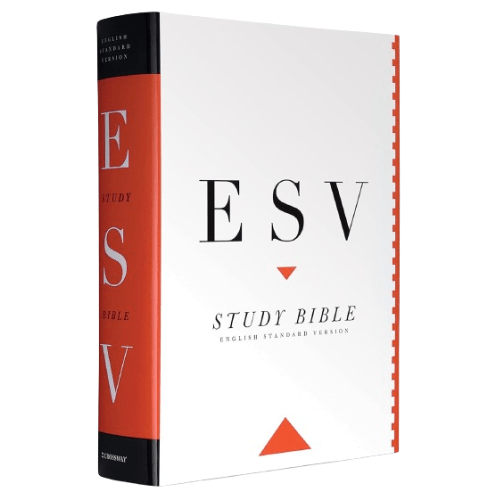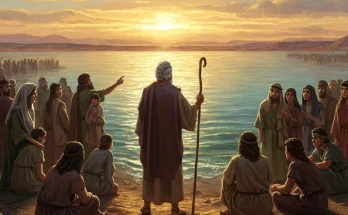What if one book could open our eyes to both divine judgment and eternal hope? The Book of Isaiah does exactly that. It invites us to witness God’s holiness, hear His warnings, and embrace His promises. Although Isaiah spoke to ancient kings and rebellious nations, his words still stir our souls today. As we walk through this powerful book together, we’ll uncover deep themes—judgment, mercy, restoration, and a coming Savior. Each chapter builds on the last, moving from confrontation to comfort.
Because Isaiah’s vision was so vast, it stretches from his own generation to the end of the age. And yet, it never loses sight of the human heart. Let’s explore the sweeping storylines, rich imagery, and prophetic hope tucked into its sixty-six chapters. Along the way, we’ll see how God remains faithful—even when His people are not.
Whether we’re facing personal trials or searching for deeper truth, the Book of Isaiah gives us a firm place to stand. So then, let’s step into this ancient message with fresh eyes and open hearts.
Writer of the Book of Isaiah
The Book of Isaiah was written by Isaiah, the son of Amoz. His name means “Yahweh is salvation”—a perfect summary of his message. He served as both prophet and advisor during the reigns of Uzziah, Jotham, Ahaz, and Hezekiah.
Because his ministry spanned decades, Isaiah witnessed massive political and spiritual shifts in Judah. Not only did he speak God’s word, but he also shaped national decisions. Interestingly, his writing style reveals a gifted mind, likely trained in the royal courts of Jerusalem. Clearly, Isaiah wasn’t just a prophet—he was a master communicator. Even so, his heart remained tender toward God’s people. Again and again, he pleaded for their return to righteousness.
As we read the Book of Isaiah, we’re not just hearing history—we’re listening to the voice of a faithful servant who walked closely with God.
Date Written
The Book of Isaiah was written between 740 and 686 B.C., during a critical time in Judah’s history. Isaiah’s ministry began the year King Uzziah died and continued through Hezekiah’s reign. Because his prophecies span decades, they reflect both immediate events and future hope. Some passages even speak to events beyond Isaiah’s lifetime. However, many believe these were revealed directly by God. Although some scholars debate the book’s unity, Isaiah is still considered the primary author from start to finish.
So then, when we read the Book of Isaiah, we’re stepping into a time of political upheaval, spiritual decline, and divine revelation. Even though the world around him was shifting, Isaiah’s message remained rooted in God’s unchanging truth.
To Whom Written
The Book of Isaiah was written first to the people of Judah and Jerusalem. They were drifting from God and needed truth. Even so, Isaiah’s words didn’t stop there. He also spoke to nations like Assyria, Babylon, Moab, and Egypt. These nations had their own pride and problems, but God still had something to say to them.
Because his message came from the Lord, Isaiah’s words echo far beyond his time. They still speak to us today. Whether we’re complacent, hurting, or longing for hope, the Book of Isaiah calls us to listen and respond. It comforts the faithful, warns the rebellious, and points all nations to the promised Messiah. So then, this book isn’t just ancient history—it’s a living word for every generation.
Purpose of the Book of Isaiah
The Book of Isaiah was written to wake God’s people up. They had drifted far from Him, yet He still called them back. Isaiah warned of judgment, but he also offered hope. Even though exile was coming, restoration would follow. That’s good news.
Through Isaiah, God exposed empty religion and demanded genuine righteousness. Rituals weren’t enough—He wanted hearts aligned with His holiness. But that’s not all. Isaiah also revealed something greater—a coming Servant who would suffer, save, and reign. So then, the Book of Isaiah gives us a full picture: justice, mercy, judgment, and redemption all woven together.
God’s message wasn’t just for ancient Judah. It was also for the nations—and for us. When we read Isaiah, we see God’s desire to heal, forgive, and restore what was broken. Even now, that purpose still stands. Let’s take it to heart and return to Him.
Historical Context of the Book of Isaiah
The Book of Isaiah takes place during one of Judah’s most unstable periods. Assyria was rising fast, swallowing nations as it advanced. Meanwhile, Judah faced its own internal mess—corruption, idolatry, and widespread spiritual decline. The people had lost their way. When King Uzziah died, a long season of uncertainty began. Leadership grew shaky, and fear drove many decisions.
📖 Explore the Old Testament from start to finish with this easy-to-follow study guide! 🔍 Grow in faith and understanding—get your copy today!✨
Ahaz, one of Judah’s kings, chose political alliances over faith in God. That choice brought serious consequences. However, Hezekiah later brought much-needed reforms. Even so, the Northern Kingdom of Israel fell to Assyria in 722 B.C. That should have shaken Judah awake.
Isaiah saw all of this firsthand. He served as a prophet and counselor to kings. Again and again, he urged them to trust the Lord. Because nations rose and fell around them, Isaiah reminded Judah that only God’s kingdom lasts. Political deals would fail—faith would not.
The Book of Isaiah also looks ahead to future exile in Babylon. Yet Isaiah didn’t stop there. He spoke of restoration, renewal, and the coming Messianic King. So then, Isaiah’s world mirrors ours—chaotic, divided, and desperate for truth. Let’s learn from their story.
Key Themes in the Book of Isaiah
The Book of Isaiah is packed with powerful themes that speak across centuries. As we explore them, we see God’s heart on display.
The Holiness of God
In chapter 6, Isaiah sees the Lord high and exalted. That moment shapes everything. God is holy—utterly pure, set apart, and glorious. Because of that, He calls us to live differently too.
Judgment and Hope
Isaiah pulls no punches. Rebellion brings consequences. However, God never leaves His people without hope. If we repent, He restores.
The Remnant
Even when the nation turns away, God preserves a faithful few. This remnant becomes the seed of future blessing. We see His mercy at work.
Messianic Prophecy
The Book of Isaiah gives us amazing glimpses of Jesus. From a virgin birth to a suffering servant, Isaiah points to the Messiah with stunning clarity.
Salvation and Redemption
God’s plan isn’t just for Israel. Salvation extends to all nations. Again and again, Isaiah reveals God’s desire to redeem the world.
The Sovereignty of God
Nations rise and fall, but God remains. He governs history with wisdom and power. Nothing can stop His plans from unfolding.
Justice and Righteousness
Isaiah reminds us: worship without justice is empty. God desires hearts that reflect His righteousness. So then, our faith must shape our actions.
Comfort and Restoration
Chapters 40–66 change tone. God speaks comfort to His people, promising healing, renewal, and joy. That message still comforts us today.
In every theme, the Book of Isaiah points us back to God’s holiness, His mercy, and His faithfulness to fulfill every promise.
Major Events/Stories in the Book of Isaiah
The Book of Isaiah weaves history, prophecy, and vision into a powerful narrative. Let’s walk through some of the most memorable moments together.
Isaiah’s Vision and Call (Isaiah 6)
Isaiah sees the Lord seated on His throne, high and lifted up. Angels cry “Holy, holy, holy!” Isaiah is undone, yet God cleanses and commissions him. This moment sets the tone for the rest of the book.
Prophecy of Immanuel (Isaiah 7:14)
King Ahaz faces invasion. Instead of trusting God, he looks for political help. Still, God offers a sign—Immanuel, “God with us.”
The Branch from Jesse (Isaiah 11)
Out of David’s broken line, a new ruler will rise. This Spirit-filled king will bring peace, justice, and unity to the nations.
Hezekiah’s Faith and Deliverance (Isaiah 36–37)
Assyria threatens Jerusalem. Hezekiah turns to God in prayer. Miraculously, God delivers the city without a single sword raised.
Hezekiah’s Illness and Pride (Isaiah 38–39)
After God heals Hezekiah, pride creeps in. He shows Babylon his treasures. As a result, Isaiah warns of future exile.
The Suffering Servant (Isaiah 52:13–53:12)
These verses paint a vivid picture of Jesus. The Servant bears our sin, suffers silently, and brings healing through His sacrifice.
New Heavens and Earth (Isaiah 65–66)
The Book of Isaiah closes with a breathtaking vision of God’s eternal kingdom—filled with peace, joy, and lasting justice.
Each event reveals a God who judges, saves, and restores. Let’s hold onto His promises today.
The ESV Study Bible
The ESV Study Bible was designed to help us understand the Bible in a deeper way. Created by a diverse team of 95 leading Bible scholars and teachers, from 9 countries, nearly 20 denominations, and 50 seminaries, colleges, and universities.
Theological Contributions of the Book of Isaiah
The Book of Isaiah offers some of the richest theology in all of Scripture. It challenges us, comforts us, and expands our view of God.
First, Isaiah reveals God’s holiness in stunning detail. In chapter 6, we don’t just see moral purity—we see majestic glory. Because God is holy, He must judge sin. Yet, He also moves with mercy.
Another major theme is the Servant of the Lord. We meet Him throughout the book, especially in the suffering servant passages. He is humble, obedient, and willing to bear our guilt.
Isaiah also opens the door wide to the nations. God’s plan isn’t just for Israel—it’s for all people. That vision of universal salvation stands strong.
And then, we see bold Messianic prophecies. A virgin will give birth. A child will be called Mighty God. The Spirit will rest on Him.
Because of these truths, the Book of Isaiah forms the backbone of much New Testament teaching. Salvation isn’t earned—it’s a gift of grace.
Finally, Isaiah reminds us that worship must be real. God desires justice, mercy, and humility—not empty rituals.
So then, Isaiah’s theology doesn’t just inform—it transforms. Let’s embrace it with open hearts.
Special Consideration in the Book of Isaiah
The Book of Isaiah stands out for its structure and style. It’s often divided into three parts: judgment (chapters 1–39), comfort (40–55), and restoration (56–66).
Because of these shifts in tone, scholars sometimes suggest multiple authors. You might hear terms like “First,” “Second,” or “Third Isaiah.” However, the consistent themes, language, and message suggest a unified prophetic voice.
Even though the content spans different time periods, God’s voice remains clear throughout. From start to finish, His holiness and redemptive plan never change.
Also, the Book of Isaiah is filled with rich poetry. Vivid imagery, parallel lines, and deep symbolism draw us in. Each verse invites careful reflection.
Moreover, Isaiah is the most quoted Old Testament book in the New Testament. That alone shows its lasting impact.
So then, whether we study it devotionally or theologically, Isaiah deserves our full attention. It’s both a literary treasure and a divine revelation.
Final Thoughts Book of Isaiah
The Book of Isaiah calls us to see God clearly—holy, just, and full of mercy. His voice still speaks today. Though judgment is real, so is redemption. Even when sin runs deep, grace reaches deeper. That’s the heart of Isaiah’s message. From visions of glory to promises of a coming Savior, this book invites us into God’s unfolding plan. So then, let’s not just study Isaiah—let’s respond. Let’s turn from sin, trust His Word, and walk in hope. The Book of Isaiah leaves us in awe, yet moves us to action. May we follow the Holy One of Israel.
Frequently Asked Questions (FAQ) Book of Isaiah Outline
1. What is the main message of the Book of Isaiah? The main message is that God is holy and just, yet full of mercy. Isaiah calls people to repent and trust in God’s salvation.
2. Who was Isaiah, and why is he important? Isaiah was a prophet in Judah who served during a time of crisis. His bold words and visions revealed God’s plans for judgment and redemption.
3. Why is the Book of Isaiah often divided into sections? Isaiah shifts in tone and content. Chapters 1–39 focus on judgment, 40–55 on comfort, and 56–66 on future restoration and glory.
4. How does Isaiah point to Jesus? Isaiah prophesies a virgin birth, a suffering servant, and a reigning King—all fulfilled in Jesus Christ. It’s rich in messianic prophecy.
5. Why should we study the Book of Isaiah today? Because its truths are timeless. It warns, comforts, and reveals God’s heart. Isaiah helps us see God’s justice and grace more clearly.




